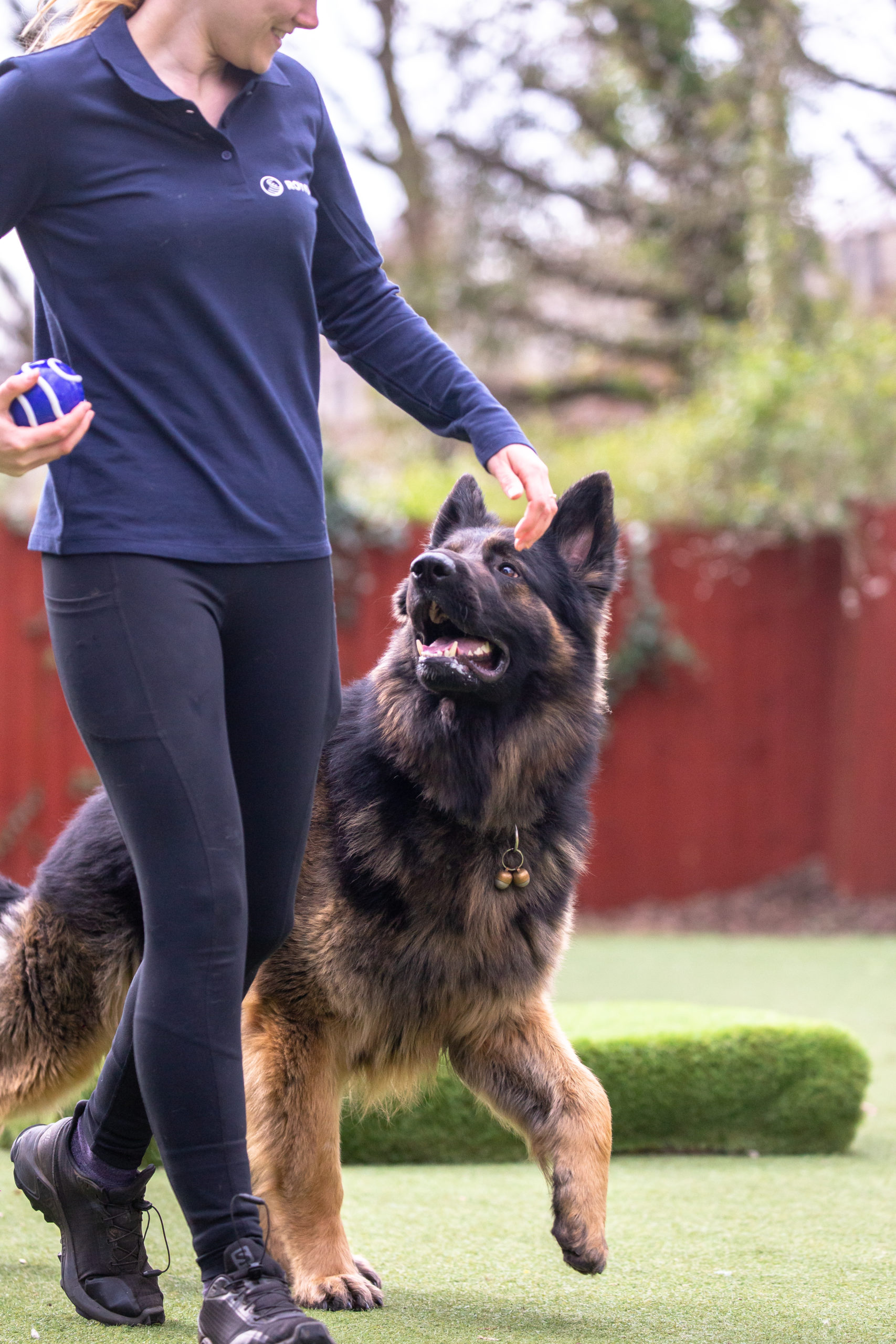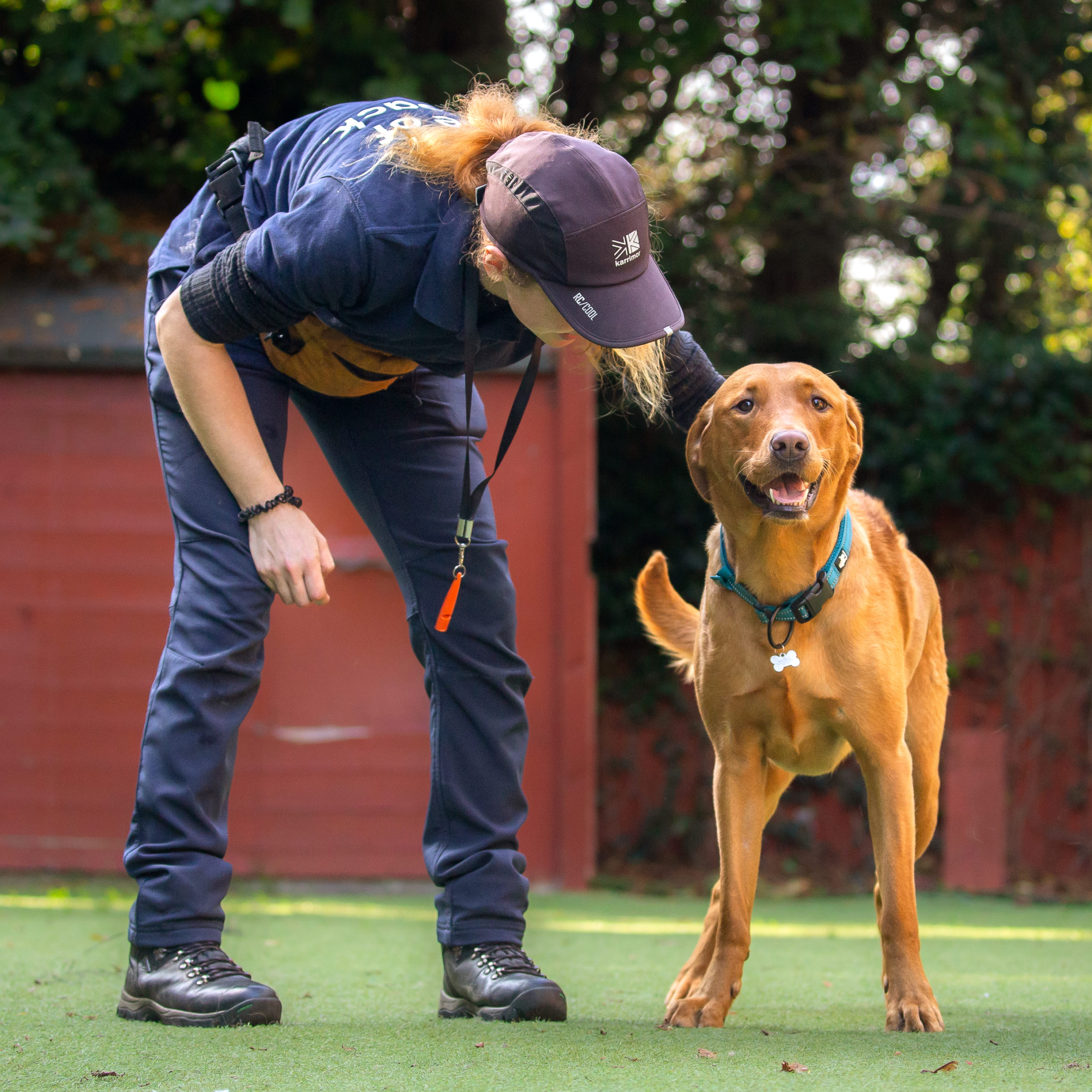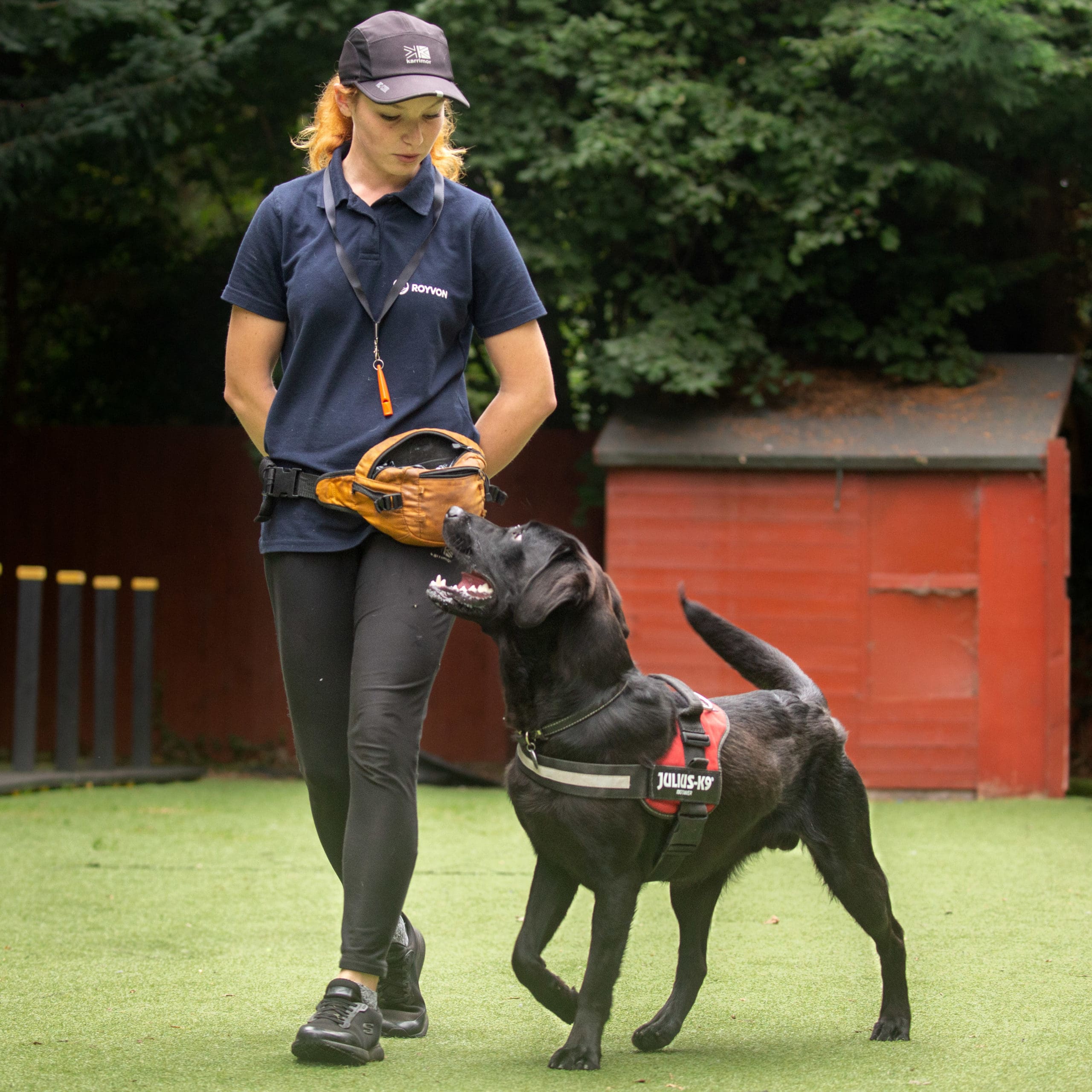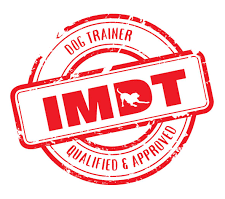Royvon was founded in 1959 and we bring decades of experience to the work we do to help dogs to live their happiest lives. A happy life for a dog equates to feeling calm, confident, and reassured, and spending as much time as possible with the family they love – you! Our training is designed for these aims: to develop the obedience that enables you to take your dog with you as much as possible, certain that the behaviour they display will be appropriate. If your dog is in an unfamiliar environment or situation, knowing that they can look to you for reassurance and guidance prevents feelings of anxiety which in turn can lead to undesirable behaviour, including aggression.
In this blog we discuss the different approaches to dog training and why we so proudly come down on one side. In dog training, there are two core styles: force free and dominance theory.
What is force free dog training?
Force free dog training is based on rewards. There is no use of force or threatening your dog to achieve an outcome, it is based on positive reinforcement of the desired behaviours. This does also mean that when the wrong behaviour is displayed, the reward is removed. The reward isn’t necessarily always a food treat – dogs are motivated by different things and it’s important to understand and use the motivation that works for your dog. Some dogs are more interested in a ball than a food treat, or lots of affection and praise. Whatever peaks their interest, when they know they can receive it in abundance from you, and then it disappears, they certainly notice! We see this right from the earliest stages when a puppy enjoys playing with your hands. If they start mouthing your hands with their sharp little teeth, rather than using force to show them that you won’t accept this, we advocate simply removing your hands. This serves the double purpose of stopping the mouthing action and providing a gentle form of punishment as they can no longer enjoy playing with your hands. We call this negative punishment, although as you will see from dominance training, it is a very different type of punishment than some trainers advocate.
What is dominance dog training?
Dominance dog training is based on the concept that the human must assert their power over the dog. If a dog isn’t willing to submit to the dominance of their human, they will receive levels of pain until they realise their place in the hierarchy.
Confusingly for those seeking a trainer for their puppy or dog, trainers who practice dominance theory use it in combination with the same positive reinforcement techniques during desirable behaviour. However, it is the use of positive punishment that makes the clearest distinction. When a dog does something wrong, the trainer applies a method of pain or restraint. A common example is the use of a choke chain, spiked collar or kneeing the dog in the chest if it jumps up on their handler. The dog soon learns not to jump up or they will receive pain. By this definition, you can see changes in the specific behaviours being targeted.


What are the side effects of dominance dog training?
However, it is not only the non-desirable behaviour that is changed – it is the trusted bond between the handler and dog. This cruel method teaches the dog that their owner cannot be trusted to keep them safe. This sort of behaviour can bring out the very worst in some dogs that do not feel that calm safety and reassurance of the relationship with their owner. We have met dogs that have been through this type of training and come back cowering, scared or worse than they were when they went into training as their anxiety levels have been raised.
What style of dog training does Royvon use?
All of our experience, our real love of dogs and our constant education in the latest scientifically-backed studies on dogs leads us to champion positive reinforcement as the key motivator for good behaviour. With residential training, there is huge trust put in the trainer while their dog is away and it is critical to know what type of training is going to be used, not just the outcomes expected. Many residential dog training options use force such as electric collars to demand obedience rather than teach it. We focus on building trust between you and your dog so that they learn that paying attention is very rewarding and they are willing and open to your directions.
Why does rewarding your dog’s good behaviour work so well?
Dogs are intelligent animals, bred to be around humans and work together with us. They learn quickly and we have the opportunity to make sure that what they are learning is healthy, useful and correct. With reward-based training they learn that obedience is the key to turning on a tap of amazing rewards – attention, fun, toys and treats are all up for grabs if they concentrate and follow the trainer.
To begin with the treats are plentiful and as they learn, the treats for the initial commands are phased out as they learn to focus on the more developed instructions. So at the beginning a dog may get treats for sitting nicely but in time this becomes the norm and they have to work a little harder for their treats – but still knowing that they are achievable. As they progress through training, the training moves to increasingly challenging environments with more distractions. If they lose their focus, the treat tap switches off. In turn, the dog seeks rewards and turns their attention back to the trainer and this triggers the treat tap to come back on, whatever type of treat that may be! In this way the dog learns that focus brings reward.
How can I get started with force free dog training?
The Royvon business is built on training dogs in obedience: from puppy education to residential training to group classes and day school. However, we do get enquiries from owners looking for their dog to display obedience in a robotic way and we take it as part of our responsibility to explain what happens during dominance dog training to achieve that. We are always force free and we see the results: happy dogs with modified behaviour that owners are proud of. For more information on the positive, force free dog training options that we offer at Royvon, please visit our web pages or book an assessment to discuss your options through My Account.





Leave A Comment